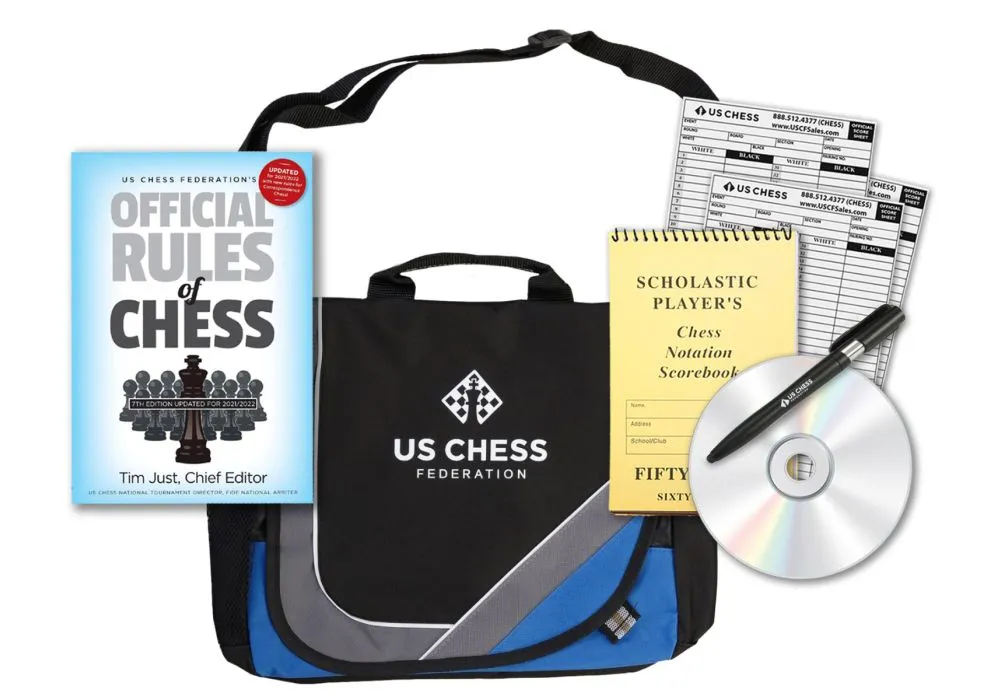Have you ever wondered what it’s like to be a USCF tournament director? Today I’m going to whet your appetite. Everything I discuss below relates to U.S. Chess Federation tournaments only. FIDE-rated events held in the USA must follow FIDE rules, too, so I won’t be discussing these events either.
Getting on the USCF Tournament Director wheel
I would encourage all players, parents, and coaches to gain a basic understanding of USCF tournament rules, whether they have an interest in directing tournaments or not.
If you want to run small rated tournaments in a school or chess club, the first step is to become a certified director. The first rung on the ladder is Club Tournament Director. Study the most up-to-date version of the USCF rules and apply to become a TD. There’s no fee to become a TD.
Your Club TD term lasts three years, and can be renewed by passing an open-book test with a 70% score. You can direct tournaments expected to draw up to 50 players — up to 60 players if you have an assistant TD and use pairing software. For most TDs, this is plenty.
Well, if I have to take a test anyway…
You may be interested in a promotion to Local Tournament Director.
To meet the experience requirements, you need to direct at least three tournaments with a total of 50 or more players, and be Chief TD of at least one of those events.
A simple way to do this is to run a rated quad and assist at as many tournaments as needed to reach the 50-player-total threshold. Email the USCF for the Local test and score 80%.
Local TDs can direct any tournament expected to draw up to 100 players. That increases to 120 players if they have an assistant and use a computer pairing program.
Promote If you have any desire to run or assist at larger tournaments. At Local, Organizers will be interested in giving you a chance; it’s hard to find good directors! The three levels after Local are Senior TD, Associate National TD (ANTD) and, at the top, National TD (NTD).
Pause! Let’s back up for a reality check.
There’s no harm in becoming a Club TD. If you never run an event, no big deal. Tournament directors don’t work for the USCF — they just need to abide by the rules and basic ethics if they run rated events. A small club or classroom tournament can be a nice experience.
It’s the bigger events you need to think carefully about.
 TDs work long days … often very long days.
TDs work long days … often very long days.
Tournaments have long hours! A scholastic event doesn’t start with Round 1 at 10 am. On-site registration opened at 9 am. Setup (tables, chairs, chess sets, food, concessions, etc.) started at 7:45 am, or even the previous day. Prizes and cleanup run 1-2 hours after the last game ends.
Don’t worry; I just want you to see the big picture. If you help at a larger event, you would probably be asked to show up at 9:30 am and watch games on the tournament “floor,” answering questions and settling disputes. You may also help with setup and/or cleanup, and leave at 5pm.
All in all, it’s not a terribly stressful way to earn some extra cash, but it’s an acquired taste.
Will you join us as a USCF tournament director?
